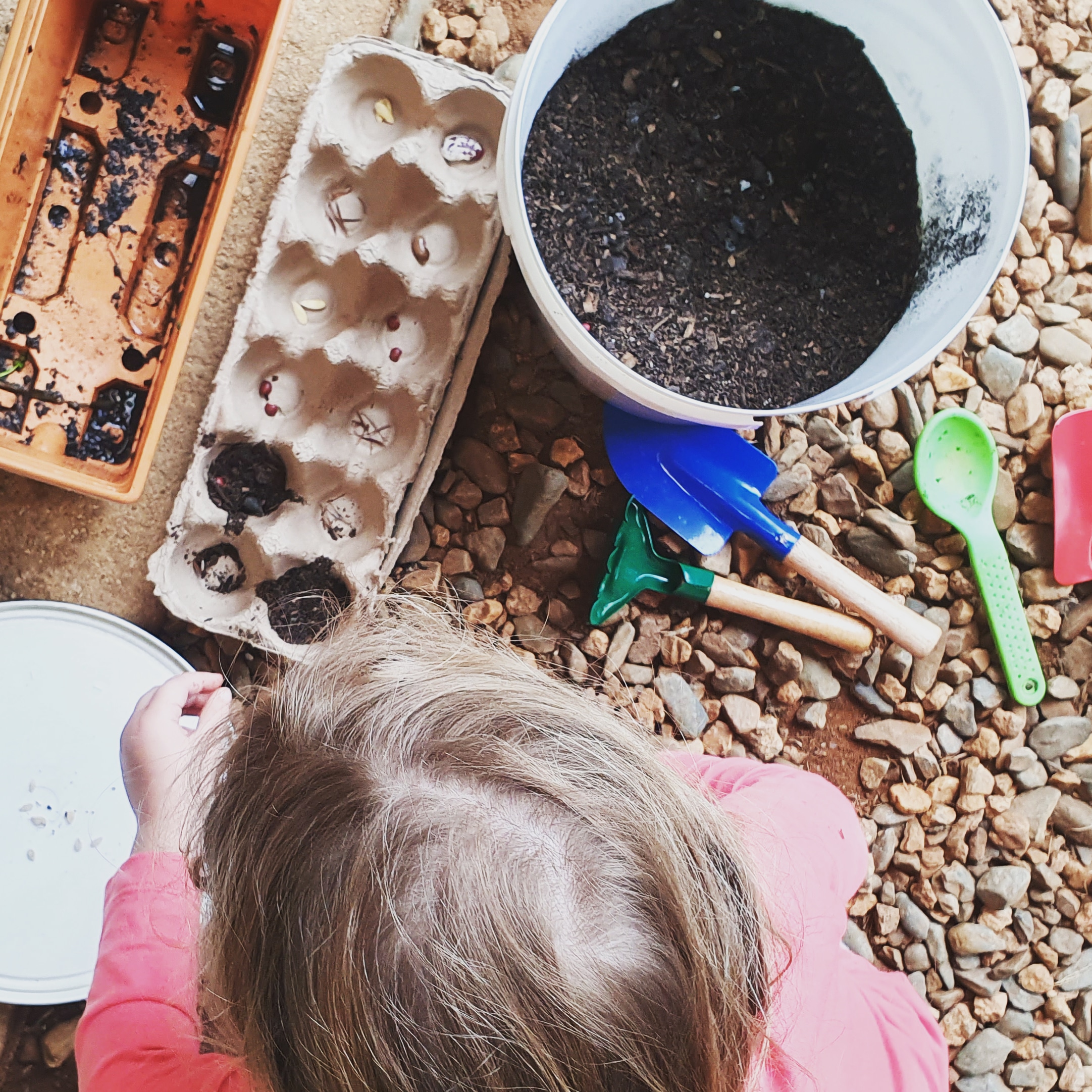Mama's Musings
Friday Freebie! Stepping Stones Magazine
The HEA are offering the Autumn issue of Stepping Stones for FREE to inspire families during the current situation due to Covid-19. It's available to read here.
Home Grown Kids: Amazing Plants
Plants are amazing. They are the foundation for all life on Earth. Within the realm of plants there are some which amaze more than others…

Why grow ordinary varieties? As a gardener, you can choose to grow rare and unusual plants. Amaze your family and yourself with less common vegetables – colours, shapes, and sizes that aren’t often seen or expected. Many ‘green’ vegetables exist as purple cultivars – beans, carrots, capsicum, potatoes, cauliflower and broccoli are readily available from heritage seed sellers.
The tiny and the giant are also incredible – from bite-sized tomatoes to wheelbarrow-worthy squash – it’s a wonder to young and old to grow and eat food not normally seen at the market. Even asparagus, a delicate fern with rapidly shooting spears is delightfully different in the vegetable patch.
Cacti and succulents are fantastic hobby plants. Children are attracted by their diversity and love to collect these potted wonders. They are fun to display, tolerate some neglect ...
Friday Freebie! A Simple Planning Worksheet
Use this Simple Planning Activity worksheet to prompt you to make goals and meet them on your home based learning journey... (click the title or image to preview the download)
This sheet is a sneak peak of the free workbook available with my Homeschool Confidently workshop at the Australian Homeschooling Summit 2020. This online event includes dozens of free downloadable resources.
Giveaway! Free Tickets to AHS 2020
Do you want a free ticket to the best Aussie homeschooling event of the year?
The Australian Homeschooling Summit is BACK! We’ve got an amazing list of over 25 speakers and 30 workshops for you this year. It was postponed from March/April and now begins on 4 May 2020.
Enter to win your free ticket here.
(Or if you've already bought your ticket, a refund)
You’re in the running just by entering, but here’s the great part – you can get MORE entries by fulfilling certain actions.
· Share it with your friends (because they’ll want to come too, right?) and you’ll get 3 more entries for every friend who signs up.
· Follow or visit our amazing sponsors, and you’ll get 5 extra entries – each!
Even if you haven’t done statistics with your kids yet, you know that the more entries you have, the higher your chance of winning.
So enter, share, and cross your fingers.
Best of luck!
The Australian Homeschool Summit 2020 is all-Australian, is easily accessible – watch from anywhere, and offers live h...
Home Grown Kids: Snack Patch
When learning about plants, like most other subjects, regular observation and participation is the best teacher. For a child (and most of us adults) there is no better incentive to garden than harvesting food to snack upon!
When creating a snack patch for children, consider creating a low, narrow garden bed or use pots so that they can reach to sow seeds, water plants, remove weeds and eat their crops. Garden beds can be made from recycled objects quite inexpensively. Starting with a small area or a few pots, even one planter box is enough to assist the child in developing an understanding of producing food from seed to table.
Other useful items include small garden tools, a watering can, and a basket or bucket to collect produce. Hats, garden gloves and boots offer protection for gardeners of all ages.

Examples of food plants which are quite easy to grow and fabulous to snack on include snow peas, green beans (climbing or bush varieties), cherry tomatoes (all varieties), na...
Friday Freebie! Homeschooling Global 2.0 Summit
You can watch all the video interviews from the 2019 Homeschooling Global Summit for free until 17 May 2020! Click on the image to access this offer:
Gardening With Children
A garden is a place to play, learn, explore, work, relax and connect with nature and each other. Supervised babies and toddlers usually enjoy time touching and eating things in the garden. Talk about your surroundings as you show them things. Being outdoors provides health benefits and promotes calm, and growing some of your own food is the ultimate way to interact with the earth. Gardening is dirty work, though, so avoid any fuss about mess by wearing appropriate clothing for the job.

Preschoolers are often enthusiastic gardeners. The magic of propagating seeds appeals to their sense of wonder. They are usually eager to help – especially if moving dirt, using water or harvesting are the tasks at hand! Working together, they will soon learn how to grow their own plants and care for these themselves. Edible gardens often inspire picky eaters to try a wider variety of foods.
Life cycles, cacti, bonsai, cooking, craft, and wild creatures will fascinate many older children. They may en...











